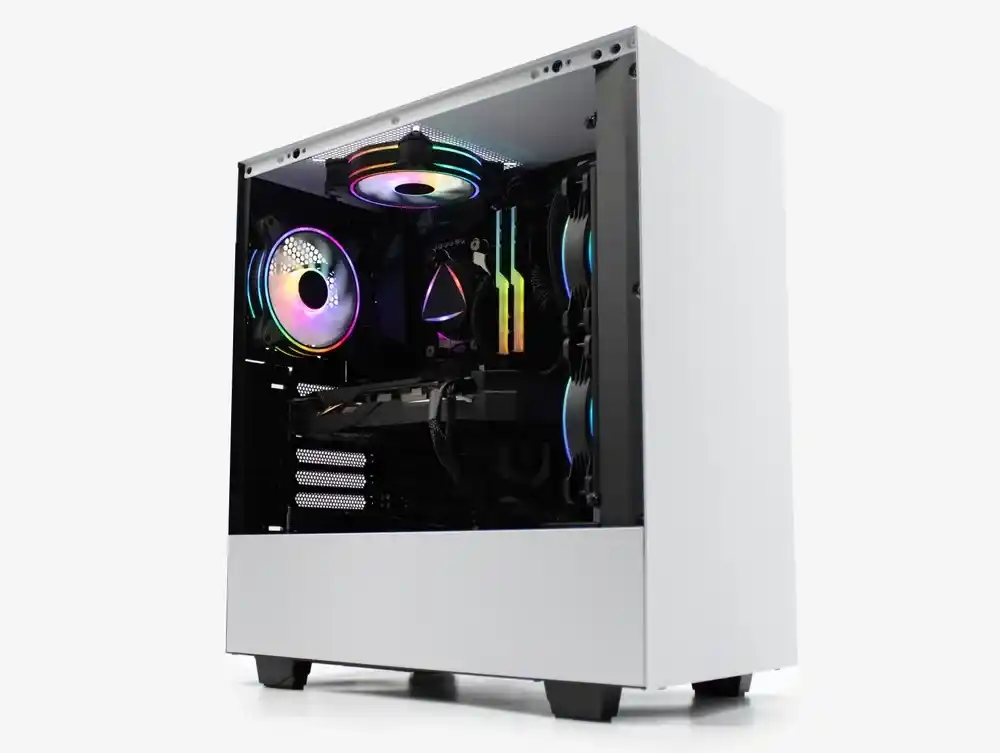Why You Should Recycle Desktop Computers
Protect the Environment
Recycle Desktop computers contain toxic substances like lead, mercury, and cadmium. If not handled properly, these substances can leak into the soil and water, harming both ecosystems and human health. Recycling ensures safe disposal and recovery of reusable materials.
Reduce E-Waste
E-waste is one of the fastest-growing waste streams globally. Disposing of outdated desktops through proper desktop recycling channels helps reduce the environmental footprint and promotes sustainability.
Keep Your Data Secure
Before engaging in desktop computer disposal, ensure your personal data is safely removed. Secure computer recycling includes wiping data and destroying drives using certified methods.
What Makes a Desktop Computer Recyclable?
Recyclable Components
Almost every part of a desktop is recyclable:
- Central Processing Unit (CPU)
- Graphics Processing Unit (GPU)
- Hard Drives and SSDs
- RAM, Motherboard, and Power Supply
- Recycle the computer monitor and peripherals
Hazardous Parts
Batteries, capacitors, and CRT monitors are hazardous and must be disposed of using certified e-waste recyclers.
Recognized Certifications
Look for R2 or e-Stewards certification to ensure ethical, eco-friendly, and legally compliant recycling.
How to Prepare Your Desktop Computer for Recycling
Step 1: Back Up Important Data
Save essential files using cloud storage or external drives.
Step 2: Wipe Data Securely
Use software like DBAN or Blancco to completely wipe the hard drive, ensuring secure computer recycling.
Step 3: Remove Personal Components
Take out personal accessories or parts you wish to keep, like hard drives or graphics cards, especially if planning to recycle computer parts separately.
Step 4: Label and Document
Record serial numbers and keep a log of what was removed or left intact.
Where to Recycle Your Desktop Computer
Local Drop-off Centers
Search for desktop computer recycling near me using local government websites or services like Earth911.
Manufacturer Take-Back Programs
Brands like Dell, HP, and Apple run computer recycling programs that include free or low-cost mail-in or drop-off options.
Charities and Nonprofits
Organisations such as Goodwill and schools accept donations. If your computer still works, you can donate desktop computer systems to support education and community tech access.
How the Desktop Recycling Process Works
1. Collection
Your desktop is picked up or dropped off at a computer recycling drop-off location.
2. Sorting
Technicians disassemble the unit and sort parts by type: plastics, metals, and reusable components.
3. Material Recovery
Materials like copper, aluminium, and rare earth elements are extracted for reuse.
4. Refurbishment or Destruction
Functional parts may be refurbished for resale, while non-working parts are destroyed.
Smart Alternatives: Reuse, Donate, or Refurbish
Reuse Internally
Old desktops can be repurposed as:
- Home file servers
- Media streaming stations
- Lightweight Linux machines
Donation
Recycle old desktop computer systems by donating to:
- Schools
- Veterans’ programs
- Libraries
Refurbishment
Upgrading memory or installing lightweight software like Linux can give your desktop a second life.
Selling Desktop Components Safely
Identify High-Value Parts
RAM, GPUs, and power supplies are often in demand and can be resold individually.
Market Safely
Use platforms like eBay or Craigslist with full disclosure of condition and specs. Always remove personal information from any storage devices.
Follow Legal Guidelines
Ensure compliance with any regulations around desktop computer disposal in your locality.
DIY vs. Professional Recycling Services
DIY Pros and Cons
Pros:
- Cost-effective
- Hands-on learning
Cons:
- Risk of incorrect disposal
- Time-consuming
- May lack data security protocols
Professional Service Benefits
- Certified and environmentally compliant
- Offer e-waste collection
- Provide certificates of destruction
Understanding E-Waste Certifications
Key Certifications
- R2 (Responsible Recycling): Global standard for electronics recyclers
- e-Stewards: High ethical and environmental standards
Why It Matters
Using certified e-waste recyclers ensures transparency, environmental compliance, and personal data protection.
Proving Your Green Contributions
- Request Certificates of Recycling for proof
- Track your recycled units
- Share your results with community programs or business sustainability efforts
Trends in Desktop Recycling and the Circular Economy
- Modular Computers: Easier repairs and upgrades mean fewer replacements
- Brand Buy-Backs: Tech companies now offer trade-ins and upgrades
- Consumer Awareness: More users are actively seeking out where to recycle their desktop computers responsibly
How to Launch a Community Recycling Initiative
Plan the Campaign
Work with local waste agencies and recyclers.
Partner with Schools and NGOs
Educational institutions and charities can help distribute donated units or organise drop-off events.
Promote Through Local Media
Use newsletters, community boards, and social media to spread the word.
Conclusion: Take Action Now
If you’ve been wondering how to recycle desktop computer devices responsibly, now you have a complete roadmap. You can choose to:
- Donate to extend its life
- Drop off at a certified recycling centre.
- Refurbish or repurpose for creative reuse
Choose smart. Choose green. Choose to recycle desktop computer systems the right way today.
Frequently Asked Questions (FAQs)
1. Where can I recycle an old desktop computer?
You can use local e-waste recycling services near me, retailer programs, or nonprofit organisations.
2. How do I safely dispose of an old desktop?
Back up your data, wipe your drive, and take it to a certified e-waste recycler.
3. Can I recycle parts like RAM or GPU separately?
Yes, many centres allow you to recycle computer parts individually or sell them.
4. Are computer monitors recyclable, too?
Absolutely! You can recycle computer monitors and desktops at most e-waste facilities.
5. What does certified e-waste recycling mean?
It ensures ethical disposal, proper data handling, and environmentally safe processes.
6. Is donation better than recycling?
If the desktop still works, donate desktop computer systems to help others and reduce waste.
